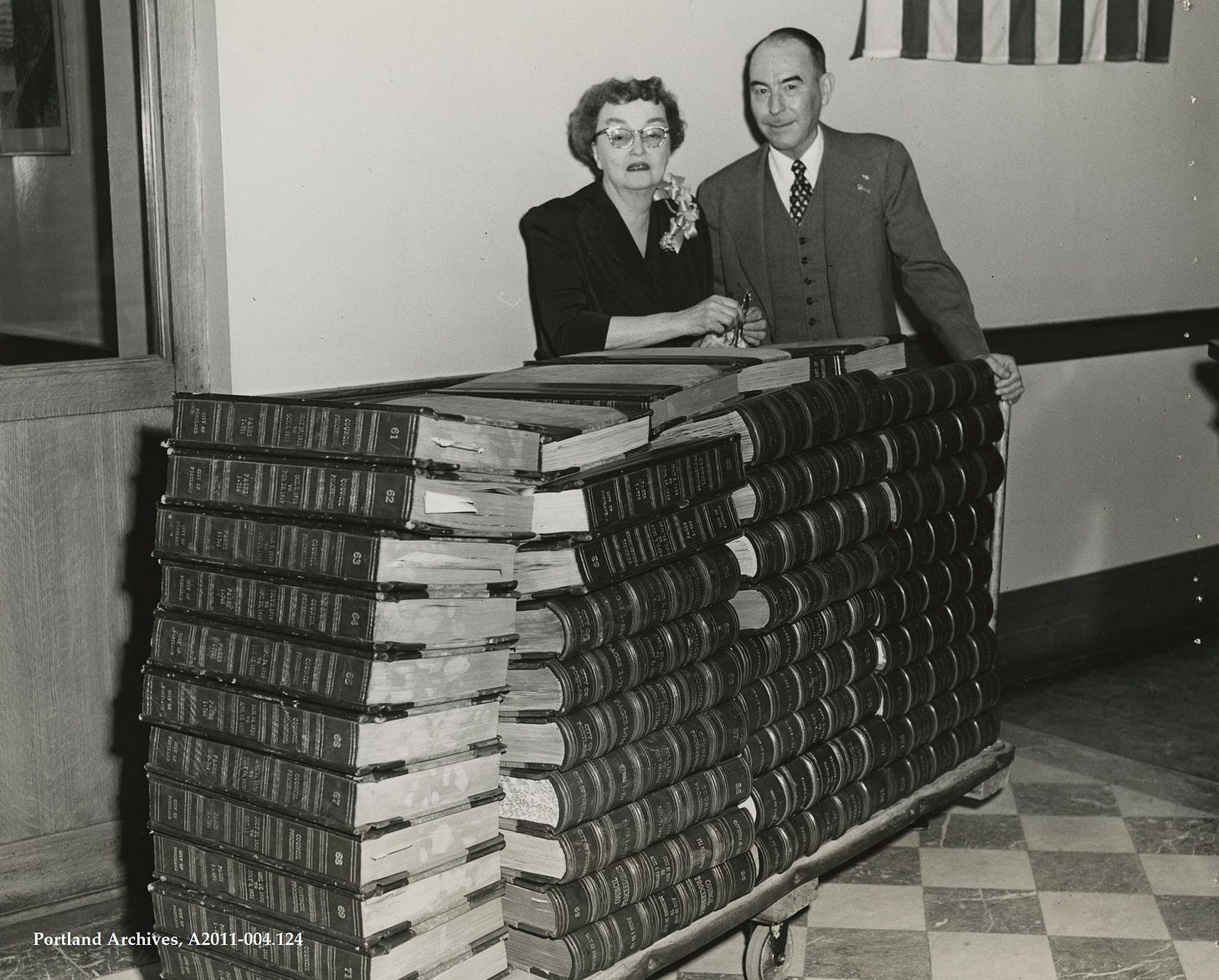I hate to miss a week here on my newsletter, but when you are so close to finishing the edits to the next book stuff happens or doesn’t. Developmental edits (thank you Megan Kruse) to my next book Blood in the Archives, which is a prequel to The Traveling Archivist, are complete and almost ready for the next edits with Luminare Press’s wonderful line editors.
The prequel is a novella and where I started writing fiction I wanted to publish. I can see how much I have learned as a writer. Somethings are cringe worthy and other things just needed to be developed further. I had to figure out how to show why public records are important to everyone and to our democracy. Yes, that is a lofty goal but I believe deeply it is the truth.

Without public records, especially at the local level, like council meeting minutes, building permits and constituent correspondence there is no evidence of the crucial engagement of the public with the government. We may not like each administration, but our ability to safely interact with a government office is how democracy works. Public records hold officials accountable and act as evidence of our participation.
I love this Alice Walker quote:
“People are know by the records they keep. If it isn’t in the records it will be said it didn’t happen. That is what history is: a keeping of records."
I believe that community archives, university and college special collections, genealogy research centers, local historical societies and really any special collection or archives are thrilling and important in their own ways. So much of what is collected and preserved would be lost if not for these types of organizations and people.
But I have a special love for public and governmental records. Not just because I worked at the Portland Archives and Record Center, but because they are undervalued until some needs proof of something. Public records often have a better chance of surviving since they are an official part of the governmental system. What gets saved and collected can be unexpected, but makes perfect sense when you have the context. And archives are all about context.
I wrote a chapter about this very topic in Building Representative Community Archives: Inclusive Strategies in Practice. My chapter, It’s in there already: finding and elevating the disparate history within hightlights several examples of unexpected records found in the offical City archives.
Many urban renewal projects across the country disproportionally affected communities of color and other underrepresented communities. Urban renewal has become a term for modern researchers to identify records that show the effects on these communities. Instead of searching the database for racial disparities or African Americans, we can guide researchers to search for urban renewal and blight to find records. We, as archivists, can help researchers find and access information about racial disparities and how communities responded by helping them navigate to records they might not have found on their own because archives are not arranged by subject. p. 182
If you are in the Portland, OR / Vancouver, WA area this weekend you will find me and 60 other local authors at the NW Book Fair at the Fort Vancouver Artillery Barracks.
Saturday July 19, 2025
10 AM to 3 PM
Free entry and free parking




Your passion for public records (and book) comes with perfect timing against today’s political backdrop of political coverups. We know that everything is not recorded but its a crucial starting point as you say. And I love the call out on searching for phrases like “urban renewal” to get to information about racial disparities.